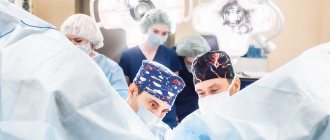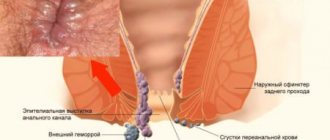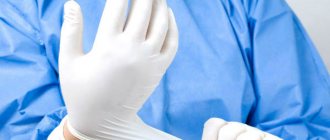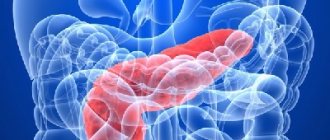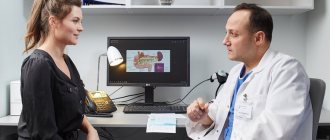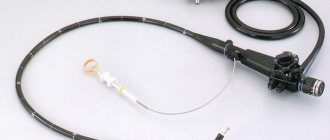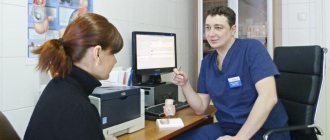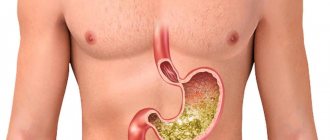Proctology is a field of medicine whose main focus is the study of diseases of the large intestine. This area also includes diagnostics, therapy and the development of new methods for treating various diseases of the rectum and intestinal sections that are adjacent to it.
A person who is a specialist in this field is called a proctologist. What does a proctologist do? His responsibilities include the study and diagnosis of pathologies of the large intestine, in particular the rectum, anus and tissues that are nearby.
What does a proctologist do?
Proctologists perform various procedures to diagnose, treat and prevent diseases of the rectum and colon.
Urgent help
Urgent action may be required if severe anal bleeding occurs, acute unbearable pain occurs, injury or a foreign body enters. In all these cases, proctologists can provide assistance at the first visit.
Diagnostics
Diagnostic procedures include examination, hardware studies, and tests. Sometimes the doctor can also refer a gastroenterologist, neurologist, urologist, or gynecologist for additional consultation.
Minimally invasive surgical treatment
The word “minimally invasive” means anemic or bloodless removal or excision of tissue. Minimally invasive include:
- laser vaporization
- ultrasound sclerotherapy
- disarterization (Hal-Rar)
- radio wave surgery
- electrocoagulation
- ligation with latex rings
To date, these methods are considered the most effective. Their undoubted advantage is the ability to carry out treatment quickly and painlessly.
Treatment is carried out on an outpatient basis (that is, without hospitalization), under local anesthesia. Almost immediately after completion of treatment, the patient goes home on his own.
After treatment, the patient does not need rehabilitation, special care or a strict diet. He continues to lead his normal lifestyle.
After treatment, the person can work, rest, eat, and can go to the toilet without problems.
Conservative treatment
This is what is commonly called treatment without surgical intervention - with the help of ointments, suppositories and other types of drugs.
As a rule, such treatment gives a short-term effect - it relieves pain and bleeding for a while. It is not possible to get rid of rectal diseases only with the help of medications.
But they help well after minimally invasive surgery. When used correctly, ointments and suppositories accelerate tissue regeneration and improve blood circulation.
Is it possible to eat before visiting a proctologist?
A proctological examination involves examining the lower parts of the large intestine, so visiting a doctor requires some preparation. First of all, the patient needs to go on a special diet 2-3 days before the visit to the medical center.
It is recommended to exclude from the diet all foods and drinks that increase gas formation. These include:
- black bread and bran;
- legumes;
- unprocessed vegetables and fruits;
- carbonated drinks.
You should also reduce the consumption of dairy products and confectionery products. The permitted group includes lean red meat, poultry, white fish, light cereals, and vegetable side dishes.
You can eat on the day of the examination, but it is better to reduce portions and avoid a heavy breakfast or lunch. This will help reduce discomfort during the procedure.
What symptoms do you see a proctologist for?
The main symptoms are:
- pain in the anus,
- blood or mucus from the anus,
- prolapse of a hemorrhoid or sensation of a foreign body in the anus,
- itching, which is accompanied by one of the above symptoms; If you are only concerned about itching, you should first consult a dermatologist.
The most dangerous symptom is considered to be blood from the anus (even in small quantities), as this may indicate the initial stage of colon cancer.
Proctology
Proctology (from Greek anus + study) branch of medicineProctology is a branch of medicine that deals with the treatment of diseases of the large intestine (rectum and colon), anus and pararectal area (peri-rectal area).
In 1997 in Russia, the specialty of proctology was officially renamed coloproctology. A specialist in the field of proctology (coloproctology) is called a proctologist (coloproctologist).
Sologubov Vasily Vladimirovich proctologist surgeon, oncologist surgeon and coloproctologist provides consultations on proctology in Moscow for any changes in the anus, such as discomfort, itching, burning, pain in the rectal area, discharge of blood, mucus or pus, swelling in the anus etc. During the examination, the proctologist surgeon determines what additional research in the field of proctology should be carried out in this case. Diseases of the rectum not only cause a lot of discomfort, many of them require serious long-term treatment. Such diseases are hemorrhoids, dysbacteriosis, anal fissures, endometriosis, cryptitis, colitis, megacolon and others
The proctology center diagnoses, treats and prevents the following diseases:
- prostatitis;
- rectal injuries;
- anal fissures;
- helminthic infestations;
- proctitis;
- anal itching;
- colitis
- epithelial coccygeal duct;
- hemorrhoids (hemorrhoidal disease);
- hemorrhoids in pregnant women;
- rectal fistula (paraproctitis);
- constipation;
- condylomas;
- colon tumors;
- colon polyps;
- nonspecific ulcerative colitis;
- rectal prolapse;
- foreign bodies of the rectum;
- dysbiosis.
- survey, including collection of medical history and current complaints;
- digital rectal examination;
- additional studies (instrumental, laboratory), if necessary - anoscopy, stool analysis, irrigography, colonoscopy.
- injuries;
- polyps;
- bowel prolapse;
- foreign bodies;
- helminthic infestations;
- anal fissures;
- paraproctitis;
- proctitis;
- colitis;
- tumors.
- regular diarrhea, constipation;
- the appearance of pain in the anus, which is important during prolonged sitting or walking;
- the appearance of pain during or after defecation;
- the formation of lumps and swelling in the area around the anus;
- the appearance of traces of blood on toilet paper;
- the appearance of traces of blood in the stool, its color can be either scarlet or very dark;
- the appearance of mucous discharge;
- redness, swelling, itching in the anus or anus;
- sensation of a foreign body in the anus;
- excretion of feces through formed fistulas;
- the hemorrhoid comes out after defecation.
Most often, in the initial stages, proctological diseases are asymptomatic, but as they progress, they can cause a whole host of problems, physical and psychological discomfort.
Remember that delaying therapy leads to the need for more radical measures, contact the Moscow proctology center today!
A practicing proctologist surgeon in Moscow examines and treats all kinds of diseases relevant to the rectum, colon, and organs adjacent to them. The official definition of the name of this field of medicine is coloproctology, but proctology is more common in everyday life, despite some of its incorrectness - proctology itself is surgical medicine.
What does a proctologist treat?
Based on the above specifics of coloproctology, it can be understood that a proctologist surgeon (coloproctologist) is a specialist who diagnoses and treats diseases associated with the rectum, colon, and anus. Somewhat earlier, proctologists were defined as specialists of a narrow profile, whose activities are concentrated exclusively in the treatment of diseases associated exclusively with the rectum, while the activities of coloproctologists are broader. Their competence, in particular, implies the identification and treatment of any type of pathology affecting each of the departments concentrated in the large intestine, that is, both the rectum and colon. To summarize, just a few years ago proctology was renamed from a narrow branch of medicine to coloproctology with a corresponding expansion of specialization. For this reason, today a proctologist surgeon, like a coloproctologist, is essentially the same specialist, despite the usual definition of them by our fellow citizens as a proctologist.
Proctology: main sections
Surgical proctology – focuses on resolving issues regarding emergency conditions caused by diseases of the rectum. For example, this may be bleeding resulting from a rupture of a hemorrhoid expanded under the influence of varicose veins. Therapeutic proctology – in this case, treatment is provided for intestinal intoxications, infectious colitis, and helminthic infestations. Moscow proctologists at the Moscow Proctology Center will conduct a full examination of your body.
What organs does the proctologist treat?
From the above-mentioned features of this specialization, it becomes clear that treatment by a proctologist surgeon involves treatment of the following organs: rectum, colon, anus.
How is an examination by a proctologist performed?
A visit to a proctologist surgeon in Moscow involves the following actions:
What diseases does a proctologist treat?
To consider in a broader sense what a proctologist does, we should highlight a list of diseases with which he deals directly:
Consultation with a proctologist surgeon:
Surely you know that the main disease for which people consult a proctologist and, in fact, which a proctologist treats, is hemorrhoids. The course of this disease can occur in either a complicated or uncomplicated form. The appearance of the first symptoms of hemorrhoids requires an obligatory solution to the question of where to find a proctologist and, of course, visiting him. If the symptoms of hemorrhoids are ignored by the patient, he may subsequently face rectal cancer - it is this disease that gives rise to hemorrhoids. Contact the Moscow proctology center.
How to prepare for an appointment with a proctologist?
Before visiting a proctologist-surgeon, you need to prepare your body accordingly. This preparation consists of manipulations that are simple in nature. So, you should empty your bowels on your own, using an enema or a laxative. It is also recommended to exclude from consumption foods that promote gas formation, including carbonated water and similar drinks, the evening before the intake.
When to go to a proctologist surgeon?
Now let us dwell directly on those points that can become important manifestations for the subsequent need to visit a proctologist at the Moscow Medical Center for Proctology. In particular, situations requiring this are as follows:
A mandatory visit to a proctologist surgeon. When is it needed?
Considering the fact that diseases of the rectal area are extremely common, the question regarding the need to visit a proctologist is no less common among adults. The occurrence of proctological diseases is accompanied by a number of physiological reasons, which, in turn, are provoked by certain conditions in which the body is at one time or another. It is for this reason that a visit to a proctologist is mandatory in the following situations: the last trimester of pregnancy, recent childbirth (about 70% of the total number of pregnant women experience symptoms characteristic of hemorrhoids); premenopausal period, as well as menopause; overweight; prolonged stay due to certain circumstances in a sitting position; undergoing operations related to hemorrhoids; reaching the age of forty if there are close relatives diagnosed with rectal cancer in this case. In the absence of obvious signs of any of the possible diseases in the area under consideration, it is recommended to visit a proctologist for the purpose of prevention, which is important because the initial stages of hemorrhoids are characterized by the absence of pronounced symptoms.
Proctologist surgeon visiting a child. When should you go for an inspection?
Some situations require a visit to the proctologist and the child. In particular, this is necessary when symptoms similar to those that occur in adults appear. In addition, a child needs to see a proctologist if there is frequent anxiety or crying that occurs during bowel movements.
How to prepare for the examination?
Preparing for an appointment with a proctologist involves cleansing the intestines of feces. Previously, there was only one way - an enema using an Esmarch mug filled with warm water. Now a person has a choice: either the same enema, or the introduction of a special drug (microenema).
Microenemas are easy to use, safe (as they are approved for use even in infants) and relieve the patient from the discomfort associated with water leakage after a regular water enema.
If you have very severe pain or heavy anal bleeding, it is recommended to consult a proctologist without preparation.
Rules for visiting a proctologist
Regardless of whether the patient is visiting a proctologist for the first time or is planning a course of outpatient therapy, there are three main rules for how to prepare for an appointment with a proctologist:
- A light diet with the exclusion of a number of foods before visiting the doctor.
- Cleansing the rectum.
- Hygiene of the outer surface of the anal canal after this.
You can get an appointment with a proctologist by referral from a therapist or by making an appointment yourself. At the reception desk, when a patient independently registers for a proctology appointment, they are given a special memo that describes in detail the course of pre-preparation for the appointment. For men and women, diagnostic procedures are similar and do not differ fundamentally.
If a woman is menstruating, the examination date is postponed.
How is the inspection carried out?
In modern paid clinics, special attention is paid not only to the high quality of diagnosis and treatment, but also to the comfort of patients.
In proctology, the most comfortable position from a physical and psychological point of view is the side lying position. This is how in most cases examination and treatment by a proctologist is carried out.
Patients are also given special proctological underwear - disposable shorts with a small hole in the problem area.
Any actions on the part of the proctologist are carried out only after treating the anal area with an anesthetic gel.
Thus, modern outpatient proctology allows a person to get rid of delicate problems in fairly comfortable conditions - without pain, without operations, without hospitalization and while maintaining working capacity (if necessary, of course, proctologists have the right to issue a sick leave).
How does a proctologist examine hemorrhoids?
Hemorrhoids are inflammation of the hemorrhoidal veins and nodes located next to the anal sphincter. Their increase makes defecation difficult, causes pain and foreign body sensation, and can lead to intestinal bleeding. As the pathology develops, painful sensations occur not only during bowel movements, but also when accidentally touching the anorectal area. The person cannot sit normally. If one of these symptoms is detected, it is recommended to visit a coloproctologist as soon as possible.
Diagnosis of hemorrhoids is no different from a general examination in proctology. First, the doctor collects anamnesis, palpates the abdomen, then examines the anal area and conducts a digital examination. Anoscopy can confirm inflammation of hemorrhoids. In some cases, video sigmoidoscopy may be prescribed.
Due to irritation of the mucous membrane, the examination may cause discomfort, so in most cases local anesthesia is used. The application anesthetic quickly relieves pain in the anorectal area and facilitates the insertion of proctological instruments into the intestine.
Examination of hemorrhoids does not take a lot of time and allows you to accurately diagnose and identify the stage of the pathology. The recommended treatment will depend on the detected pathology.
What kind of doctor is this
Most specialists in this area begin their careers working as hospital surgeons - they perform abdominal and endoscopic operations on various organs of the abdominal cavity and perianal region. And the longer they improve in the surgery department, the better. After all, the work of a coloproctologist is akin to the art of jewelry.
To become a proctologist, you must first train as a surgeon. Then, choose a narrow specialization (proctology) and receive additional education in it. Then years of practice in inpatient hospitals - operations, dressings, rehabilitation measures...
Having gone through this entire long period of formation, the surgeon acquires the most complete understanding of the processes that occur in the internal organs of a person. In the future, he will be able to use the acquired practical knowledge to predict the possible consequences of treating hemorrhoids and other proctological diseases.
What to expect at your appointment
If this is a planned first visit to a coloproctologist without visible symptoms, then the appointment will not take much time. If the patient has complaints, the examination will require a more detailed diagnosis. First of all, the doctor will interview the patient and study his medical history, if any. The initial examination consists of palpation of the intestine and manual examination of the intestine.
Anoscopy is also considered a mandatory method of examination. This procedure is carried out using a special device - an anoscope.
This is a small tube that is inserted into the colon for a more detailed examination. Such measures allow you to thoroughly examine the intestinal walls, check for cracks, neoplasms, tumors, etc. During anoscopy, the doctor can take material for a biopsy.
If the initial examination and collection of patient complaints suggest a suspicion of a more serious problem, a colonoscopy or sigmoidoscopy may be necessary. All of them are carried out using special equipment, and are not always painful. Colonoscopy is used for a complete examination of the large intestine; today this procedure is considered the most informative among other diagnostic options. Almost all procedures that may be accompanied by pain are performed under local or general anesthesia.
After collecting all the necessary information and biomaterial, the proctologist can refer the patient for additional blood, stool and urine tests. This is necessary to check for the presence of fungi, viruses, determine tumor markers, and more. The specialist will make an accurate diagnosis based on a complete diagnostic and laboratory examination. You may also need to consult doctors of other specialties if problems with stool or anal itching are the causes of certain ailments.
After this, there may be two options for events: the doctor will say that everything is in order (if this is a preventive examination) and will advise preventive measures; The doctor will establish a diagnosis and treatment options. Management of such patients does not always require surgery; in many cases, diet and drug therapy are sufficient. In addition, many situations that were previously solved surgically can now be eliminated using gentle methods, for example, using a laser.
Preparatory activities
Preparing for a proctologist should not cause patients either a feeling of embarrassment or fear. How to see a proctologist so that your visit to the doctor is the most optimal and useful?
Purgation
Before coming to the coloproctologist, you should take measures to cleanse the intestines. This must be done correctly - no earlier than six hours and no later than one hour before visiting a medical facility.
Enemas and laxatives will help patients. You can do an enema yourself using water at room temperature in a volume of 1.5-2.0 liters or use pharmaceutical products - microlax.
The enema should be given in the morning, approximately 3-8 hours before the appointment. For convenience, you can use an Esmarch mug with the ability to pump in a larger volume of water and switch the liquid supply. Ready-made pharmacy enemas such as microlax contain a solution of oil consistency, which gently and effectively affects the functioning of the intestines and its rapid emptying. The drug is produced in special tubes with a tip, it acts in 5-10 minutes, excluding injury to the mucous membrane of the anal canal.
Diet
To be examined by a proctologist, you need to follow a certain diet. About 24 hours before your visit to the proctologist you need to exclude from your menu:
- foods that cause flatulence (legumes, fresh vegetables, especially cabbage);
- dairy products;
- carbonated drinks, kvass.
During this period, it is better not to season dishes with hot seasonings, not to get carried away with salty or smoked foods, and not to drink alcohol.
What diseases are treated by a coloproctologist?
In addition to the most common diseases caused by infection, such a doctor also treats other intestinal ailments. His areas of specialization include congenital pathologies, oncological formations, and mechanical injuries.
Depending on the nature of the disease, the doctor provides surgical assistance and prescribes medication, monitors the progress of therapy until the problem is completely resolved.
A proctologist deals with the following diseases:
- rupture of the mucous membrane in the anus (crack), hemorrhoids, inflammation of the colon - colitis;
- rectal prolapse;
- dysbacteriosis, polyposis, rectal ulcers;
- paraproctitis, coccyx cyst, oncological formations
- infestation with worms;
- bowel disorders: constipation, diarrhea, incontinence;
- removal of foreign bodies.
Scientists call colorectal cancer the most common problem in this area.
Among all cases of cancer, it ranks third and continues to progress.
The WHO Secretariat notes that the increased mortality from this disease is caused by late patients seeking help and the lack of an effective treatment system (WHO cancer incidence data for 2016). Scientists are also very concerned about hemorrhoids, which are becoming more common.
This phenomenon is caused by dilation of the veins in the lower intestine, which causes nodes to appear that bleed and hurt.
Hemorrhoids can be caused by many factors: physical stress, sedentary work, childbirth, alcohol abuse, excess weight.
Due to the wide range of medications available without a prescription, patients often make the situation worse. Instead of undergoing minor treatment in the early stages, patients take the disease to a chronic course.
Calling a proctologist to your home
Our clinic offers. Each person can dial our phone number and invite a doctor to his address at a convenient time. Reception at home has many advantages and provides an opportunity for some categories of citizens to receive qualified medical care.
The main advantages of the service include:
- high speed of doctor arrival;
- the opportunity to take a number of tests and get their results without leaving home;
- more thorough inspection and lack of distractions.
At home, the patient feels more relaxed, which allows the delicate examination procedure to be carried out as thoroughly and informatively as possible.
In addition to people who constantly lack time to visit the hospital, the service will become indispensable for bedridden patients, elderly patients, disabled people, and young mothers on maternity leave.
How and where to apply: paid and free
Where can I find a proctologist? Who receives patients in free clinics at their place of residence under the compulsory medical insurance policy if there is no proctologist? Do I need to go to the hospital for hemorrhoids? What is the difference between a paid examination by a proctologist and a free one?
Many people faced with proctological symptoms ask similar questions. We will try to answer them.
Doctors who have the right to examine and treat proctological diseases work:
- in clinics at the place of residence;
- in hospitals - city, regional or republican;
- in paid medical centers.
Let's look at the features of each option.
Polyclinic at your place of residence (compulsory medical insurance)
In most clinics, the duties of a coloproctologist are performed by a surgeon. For diagnosis, a digital examination is performed. To relieve you of suffering, the surgeon can only prescribe ointments, rectal suppositories and oral medications.
This helps temporarily relieve itching, pain and stop bleeding. But it does not cure the disease. And, unfortunately, in such conditions it is often impossible to establish an accurate diagnosis.
Therefore, if pharmacotherapy does not help, and the symptoms return, the surgeon can give a referral to the inpatient department of the hospital to which this clinic belongs.
Coloproctology department of the hospital
You can get here in two ways - by referral from a surgeon at your place of residence or by ambulance. Proctologist services can be obtained here both for a fee and for free. This depends on many factors, primarily on internal rules for providing assistance to the population.
For example, it may matter whether you live in the same city or are a newcomer. Do you belong to the categories of patients who have the right to receive medical services under a quota? At the time of your application, is it possible to accept you under a quota? If not, they will put you on a waiting list or offer you treatment for a fee. If the patient is in critical condition and is brought by ambulance, he will be provided with emergency care.
In general, if you decide to see a proctologist in a hospital hospital, you can find out the details on their official website, on directory websites, or at the clinic at your place of residence. We recommend that you thoroughly find out what the application procedure is, what documents need to be collected, what tests need to be taken, and what form to take for a medical examination. When visiting a hospital, a huge number of similar nuances and questions may arise, the complete answers to which, perhaps, only the staff of these hospitals can give.
Paid medical centers, specialized private clinics
Getting into a paid clinic is usually the easiest way. Just call or leave a request on the clinic’s website.
Over the phone, you will be asked a few simple questions to make sure that you really need to be examined by a proctologist.
The following will explain in detail:
- how to prepare for the appointment and examination;
- what is included in the initial consultation;
- how the diagnosis is carried out - on what equipment, in what position, how many minutes it lasts, what the doctor does, etc.;
- what doctors work in the clinic - their work experience, achievements, regalia.
Then they will offer a day and time when you can come for an appointment and get examined. If the clinic is serious, then appointments are carried out only by appointment - so as not to force patients to wait in the corridor, but to come on the appointed day and time and immediately get in for a consultation.
Paid or free: is there a difference?
PAID
- There are many proctologists in the clinic. Therefore, reception is carried out daily in two shifts, seven days a week. Patients are treated by doctors who specialize in proctology and have many years of practical experience in performing surgical operations in hospital settings.
- Comprehensive examination using hardware methods. Accurate diagnosis on the day of treatment.
- Non-surgical hardware treatment methods. Bloodless surgery: laser, ultrasound or radio wave.
- All necessary tests can be taken directly in the same clinic. There is no need to collect documents or undergo a medical examination.
- All without queues.
- Complete treatment in 1-2-3 procedures. No hospitalization. Fast healing after therapy. Virtually no restrictions. You can go to work even on the day of the procedure.
FOR FREE
- Difficult to get in. There are few doctors. The result is an inconvenient work schedule.
- Inspection and finger examination only. Establishing an accurate diagnosis on an outpatient basis is not always possible due to the lack of special equipment in clinics.
- Prescribing ointments and tablets for temporary relief. If it doesn’t help, a referral to a hospital for surgery.
- To get to the hospital, you need to collect documents, undergo a medical examination, and take tests yourself.
- Queues can range from several days to several months.
- A serious operation requiring hospitalization and long-term rehabilitation. Lots of prohibitions, restrictions and rules for recovery.
Do I need to go to hospital for treatment?
If you go to a clinic at your place of residence, there is a fairly high probability that you will be offered to go to a hospital.
In a paid center, all manipulations will be performed on an outpatient basis (without hospitalization), in 1-3 visits to the doctor.


